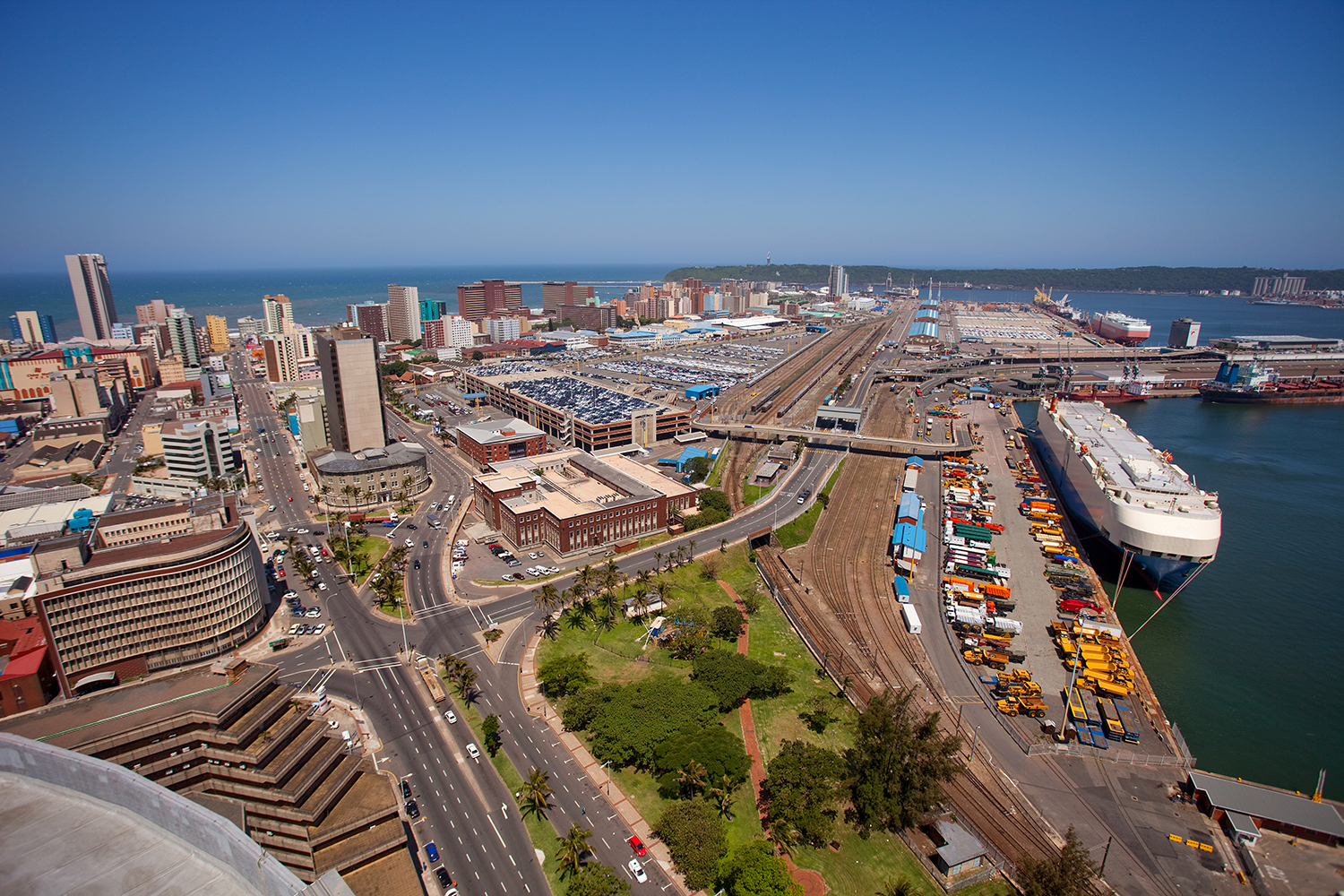
Economic Overview
KwaZulu-Natal has the second largest economy in the country.
It contributes some 16% towards the country's GDP. Manufacturing, trade, business services and transport communications are the largest
and strongest growth sectors of the provincial economy, together with aluminium conversion, fabricated products, automotive components,
conversion (emphasis on export-oriented investment), electronics, engineering, metal works, petro-chemicals and wood products.
This province offers a highly competitive advantage in capital-intensive manufacturing, transport, storage and communications, as well as
finance and business services. It is also well positioned in agriculture, forestry and fishing, agricultural resource-intensive manufacturing
and in the tourism and accommodation sectors.
Boasting the highest export propensity and the highest level of industrialisation in the country, the economic structure in KwaZulu-Natal
is based on a large manufacturing sector in which growth is driven by the paper and paper products industry, ferroalloys (such as aluminium)
and other chemicals. Further significant sub-sectors include motor vehicles and component manufacture, printing and publishing, food and beverage
production, non-electrical machinery, iron and steel, wood furniture, textiles and clothing.
KwaZulu-Natal's emergence as a hub of industrial development in sub-Saharan Africa may be attributed to its unmatched natural resource endowments,
exceptional productive capacity, well-developed first-world infrastructure and advantageous coastal location. Economic activity is concentrated in
the metropolitan areas of Durban, Pietermaritzburg and Richards Bay, with the coastal belts utilised for sugar cane plantations and sub-tropical fruit
and vegetables.
Two of Africa's primary seaports are located in KwaZulu-Natal, while the world-class Dube TradePort - home to King Shaka International Airport - provide
a key competitive advantage and ensure the province's importance for economic growth, effectively repositioning the country to increase its share of the
global market.
Banking and Financial Aspects
South Africa’s highly competitive banking and finance industry is as technologically sophisticated as any in the world, with the high-tech first-world
service sector being able to accommodate the most demanding needs of business, shipping agencies and foreign investors. The country’s bankers, financial
advisors, lawyers, tax consultants and experienced chartered accountants are capable of advising foreign banks on legal issues and guiding them through
regulatory requirements with ongoing auditing services.
The South African Reserve Bank (SARB) oversees the banking services industry, while the Financial Services Board (FSB) governs the non-banking financial
services industry. South Africa’s principle financial service markets comprise the following:
• JSE Securities Exchange;
• South African Futures Exchange; and
• Bond Exchange of South Africa.
Once approval is obtained for foreign loans, commercial banks also monitor and report on receipt and usage of loan funds. The well-established
Johannesburg Stock Exchange (JSE) is ranked amongst the largest in the world, providing opportunities for private investment in sizeable South African
companies, with volumes and foreign purchases having increased dramatically. It also offers opportunities to smaller, newer companies to seek out investors
through the Development Capital Market, as well as a Traded Options Market for dealings in financial futures.
